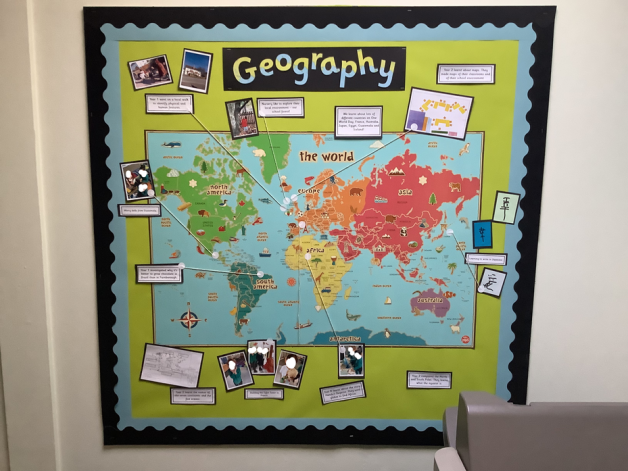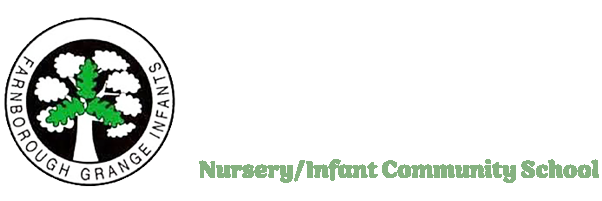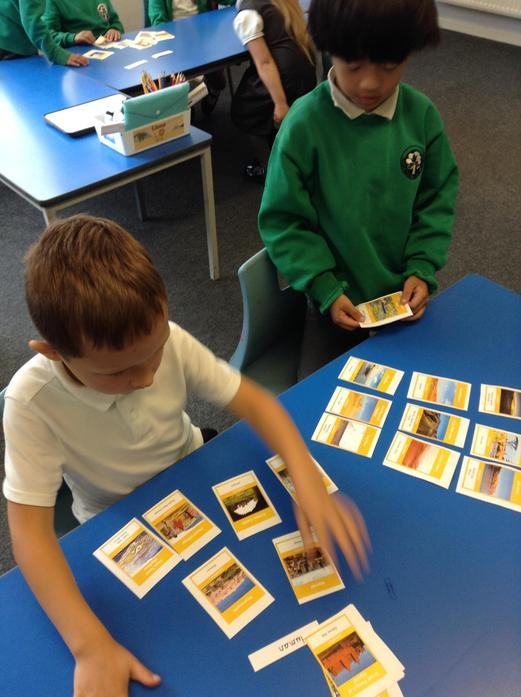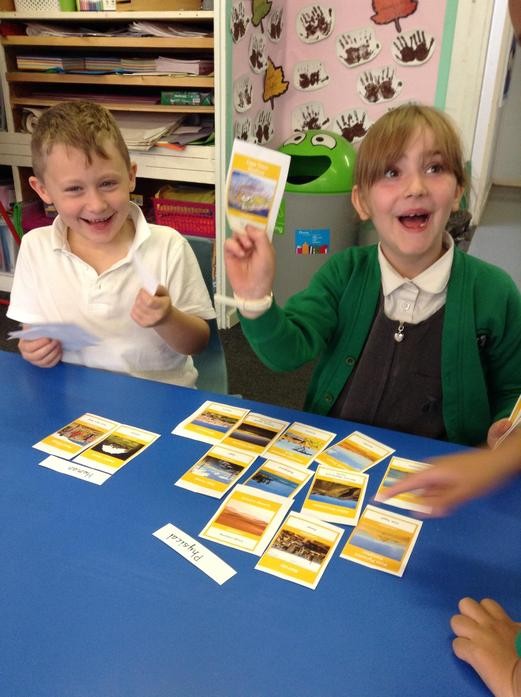Geography

Intent
At Farnborough Grange Nursery and Infant School, we have a clear intent for the teaching and learning of Geography. Our aim is to develop children’s knowledge, understanding and curiosity about the world around them. We believe that Geography is an important subject that helps children to make sense of their local area, diverse cultures and global issues.
Our intent is to foster a sense of awe and wonder, inspire a love for exploring the world and provide a strong foundation for future geographical learning. We want our children to develop key geographical skills, such as map reading, critical thinking and problem solving. Through our teaching, we aim for children to gain a greater sense of belonging in their community and a respect for the world around them.
We have ensured that the curriculum for Geography contains the correct content and progression through each Key Stage because curriculum overviews were created in reference to the National Curriculum 2014 and expected outcomes are in line with end of year expectations. Our curriculum starts small, with children in Nursery exploring their immediate environment, and dreaming big, with Year 2 learning about the world’s seven continents. Our curriculum is aspirational and shows children that they belong in the world.
Implementation
The Geography curriculum is implemented at each stage in the following ways:
EYFS
-
In Nursery, children are taught to identify some places in their immediate environment and to make observations about their immediate environment. Children also make daily observations of the weather.
-
In Reception, children are taught to discuss features of their local environment and begin to consider how different environments may vary. They are also taught to use the local area for exploring both the built and natural environment, as well as usual simple directional language.
-
Children develop their vocabulary, using subject specific vocabulary such as nursery, school, hot, cold, rain and sun. In Reception, they also develop an understanding of simple directional language.
-
Children have the opportunity to apply their learning by exploring their local environments. Children in the EYFS participate in exploration walks around the school site, including to the school forest area.
Year 1
-
In Year 1 children are taught about weather patterns in the UK and maps. They also partake in a comparative study, comparing Farnborough to Nepalgunj, a small area of Nepal.
-
Throughout Year 1, children develop their skills in locational knowledge through naming and locating the countries of the UK, as well as locating these on a map. They also develop understanding of human and physical geography and begin to use basic geographical vocabulary for human and physical features. Children use simple fieldwork and observational skills to study geographical features of their environment, as well as conducting simple surveys to collect data.
-
We understand the importance of geographical language for children’s understanding and effective communication. Topic-specific vocabulary is explicitly taught and modelled, enabling children to express their ideas and engage in discussions about geographical concepts.
-
Children have the opportunity to apply their Geography learning to other subjects, allowing them to make connections across different areas of learning. For example, Geography is incorporated into English by exploring books set in different countries or utilising maps for mathematical activities.
Year 2
-
In Year 2 children compare Farnborough to Capos de Jordao in Brazil. They also study the North and South Poles and develop the map skills that they learnt in Year 1.
-
Children in Year 2 learn to name and locate the world’s seven continents and five oceans. They also compare and contrast seasonal and daily weather patterns in the UK and another locality worldwide. They also develop their understanding of human and physical features and work towards using this knowledge independently.
-
Children develop their vocabulary through learning the eight points of a compass, as well as some map-specific vocabulary. Topic-specific vocabulary is referenced in each lesson and forms an integral part of class topic displays.
-
Children have the opportunity to apply their Geography learning to other subjects, allowing them to make connections across different areas of learning. For example, Geography is incorporated into English by exploring books set in different countries or utilising maps for mathematical activities.
Provision for key groups at our school
-
We strive to ensure that all pupils, regardless of their ability or additional needs, have equal access to high-quality Geography education.
-
Differentiation strategies are employed to support learners who require additional help, and gifted and talented pupils are appropriately challenged.
-
Provision is made for pupils with physical disabilities or sensory impairments to participate fully in all geographical activities.
-
We promote a respectful and supportive learning environment, where pupils value and celebrate each other's contributions.
Wider opportunities
-
All children across the school participate in Forest School sessions, gaining a sense of respect for their surroundings and a love of the natural world.
-
Children take part in a yearly ‘One World Day’, where they celebrate different countries of the world and gain a sense of aspiration to visit different places in the world.
Impact
The impact of our intent and effective implementation can be observed through the outcomes and experiences of our children. Through regular formative and summative assessments, we track their progress in acquiring geographical knowledge and skills. We celebrate achievements and provide constructive feedback to enable further development.
The impact of our Geography curriculum is evident in the following areas:
Knowledge and Understanding
Children demonstrate a strong understanding of geographical concepts, including map reading, physical and human features and weather. They also develop an appreciation for cultural diversity, both locally and globally.
Skills Development
Our children develop a range of geographical skills, such as map interpretation, data analysis, critical thinking, problem-solving, and communication. These skills are transferable and support their learning across the curriculum
Engagement and Enthusiasm
We foster a love for Geography through engaging and stimulating lessons that capture children's curiosity. Our children are enthusiastic about exploring the world around them, ask thought-provoking questions, and actively participate in discussions.
Cultural Awareness and Global Citizenship
Through studying different cultures, climates, and environments, our children gain an understanding of global issues and develop empathy towards different communities. This fosters a sense of global belonging and prepares them to be responsible, respectful, and engaged members of society.
Our intent, implementation, and impact work together to ensure that children leave Farnborough Grange Nursery and Infant school as confident, knowledgeable, and inspired geographers, ready for the next stage of their educational journey.


